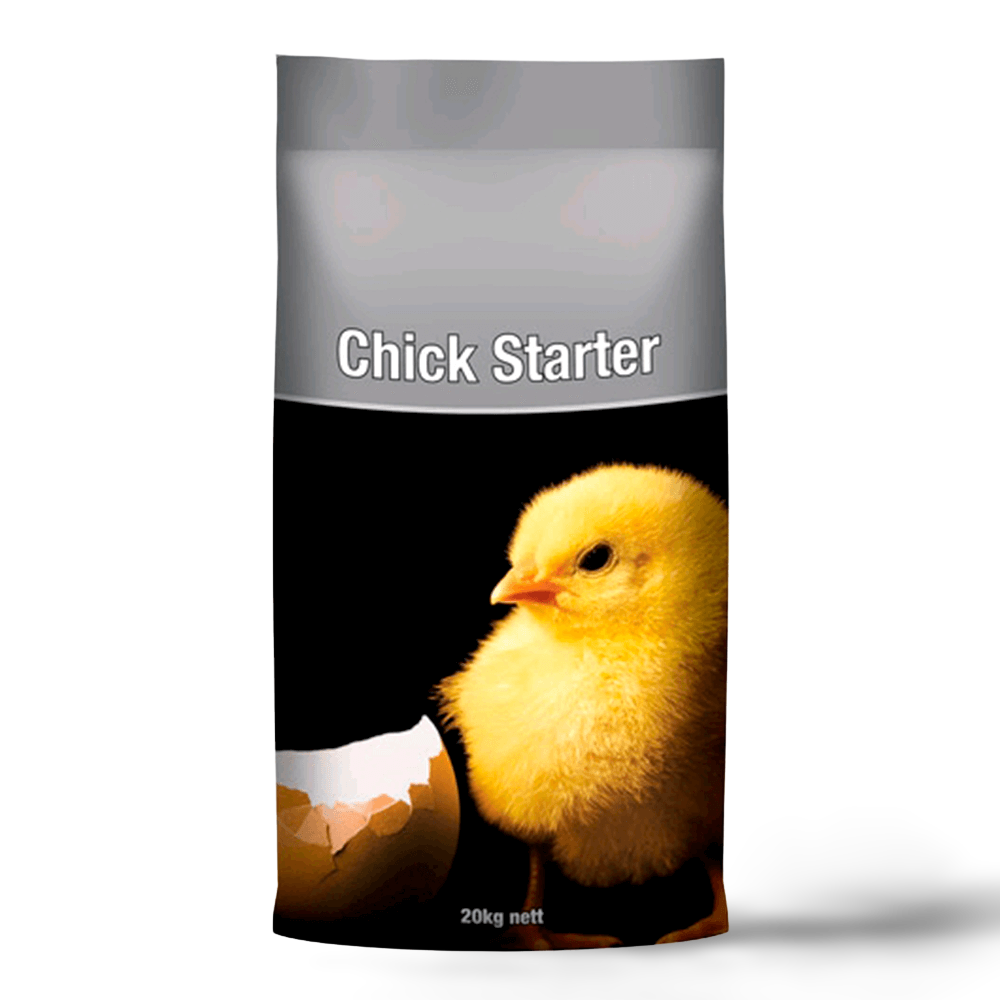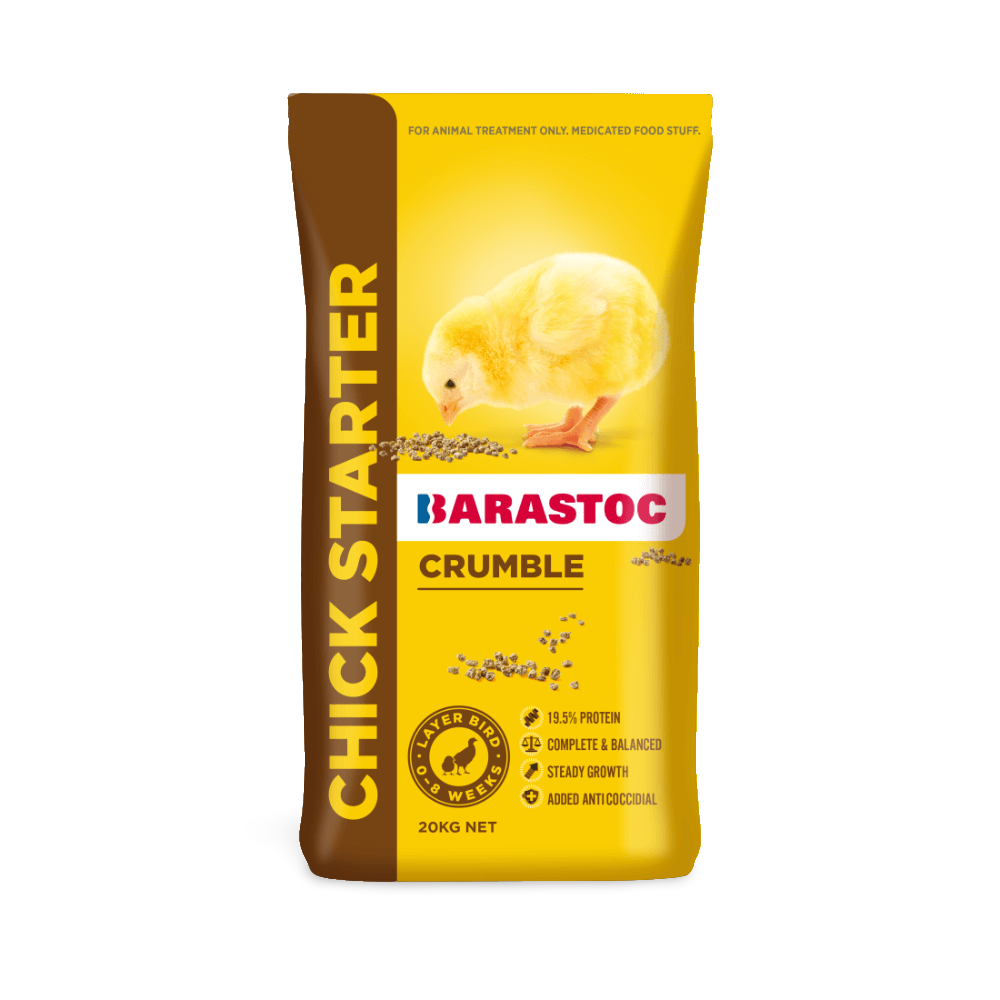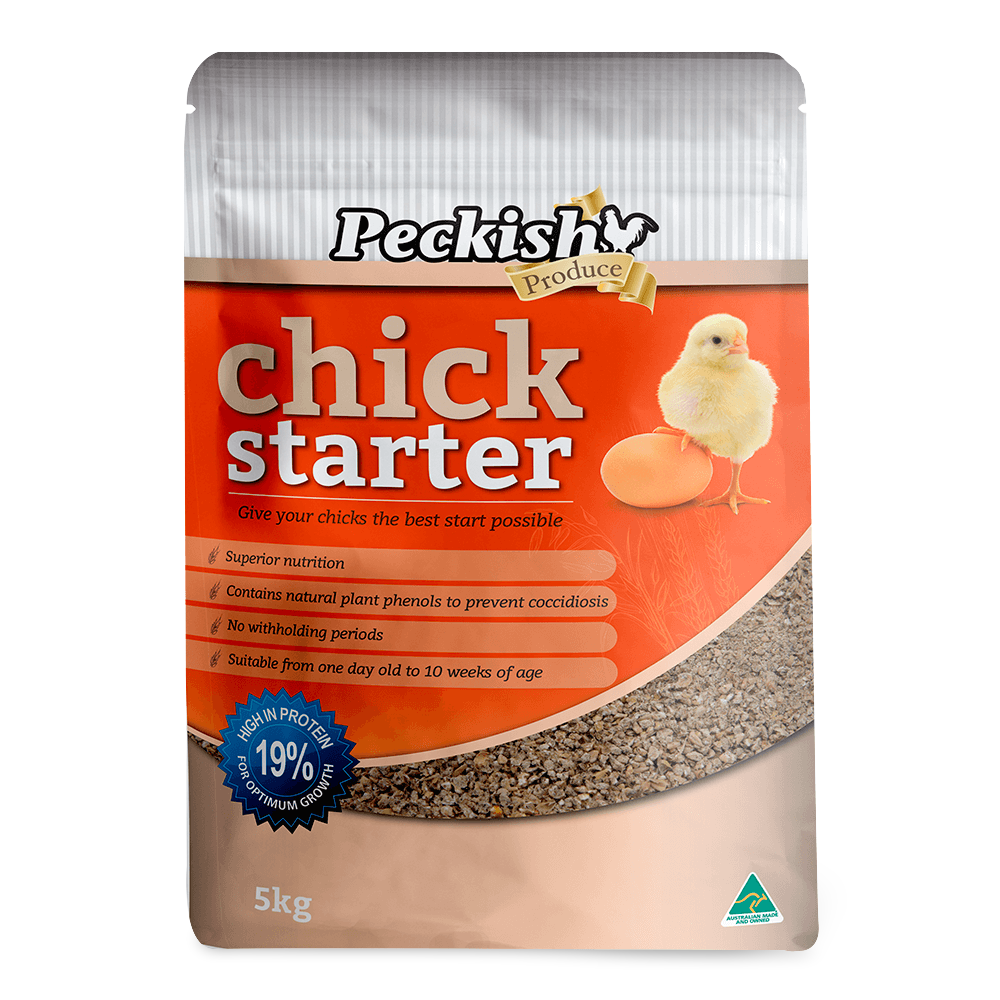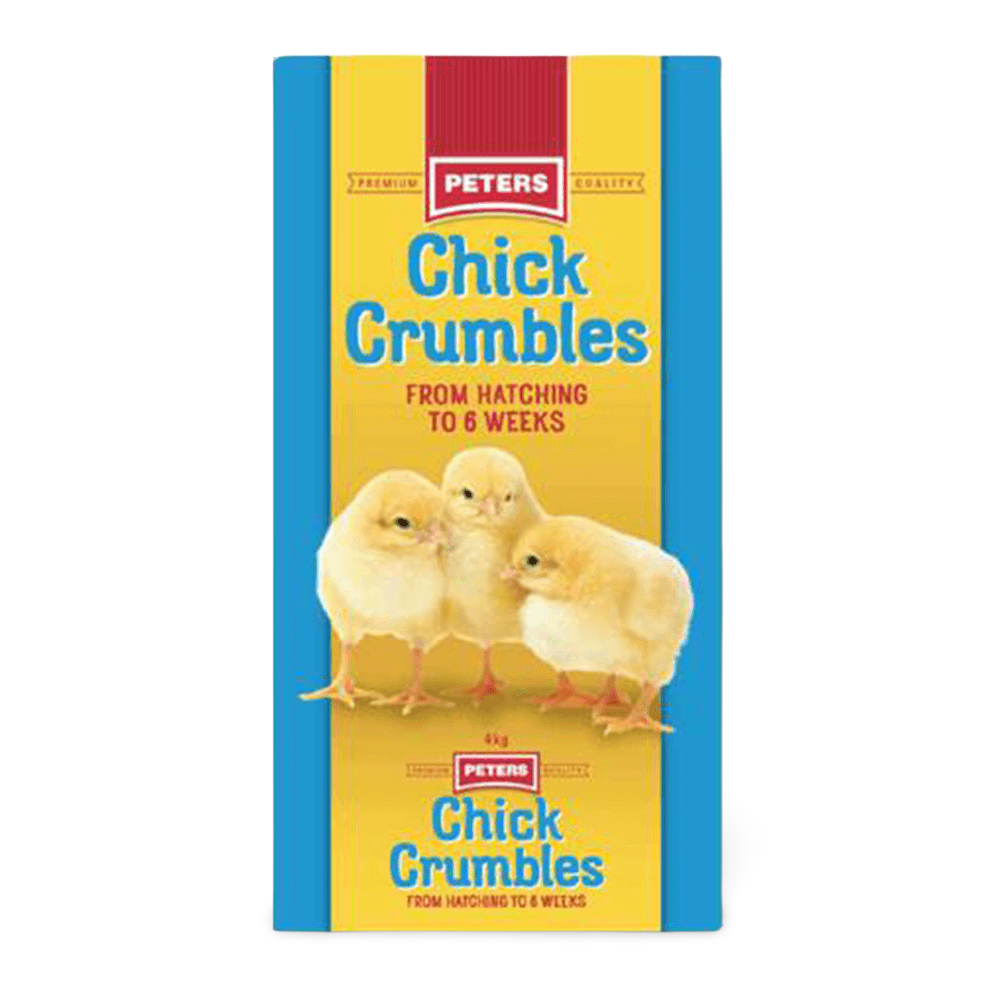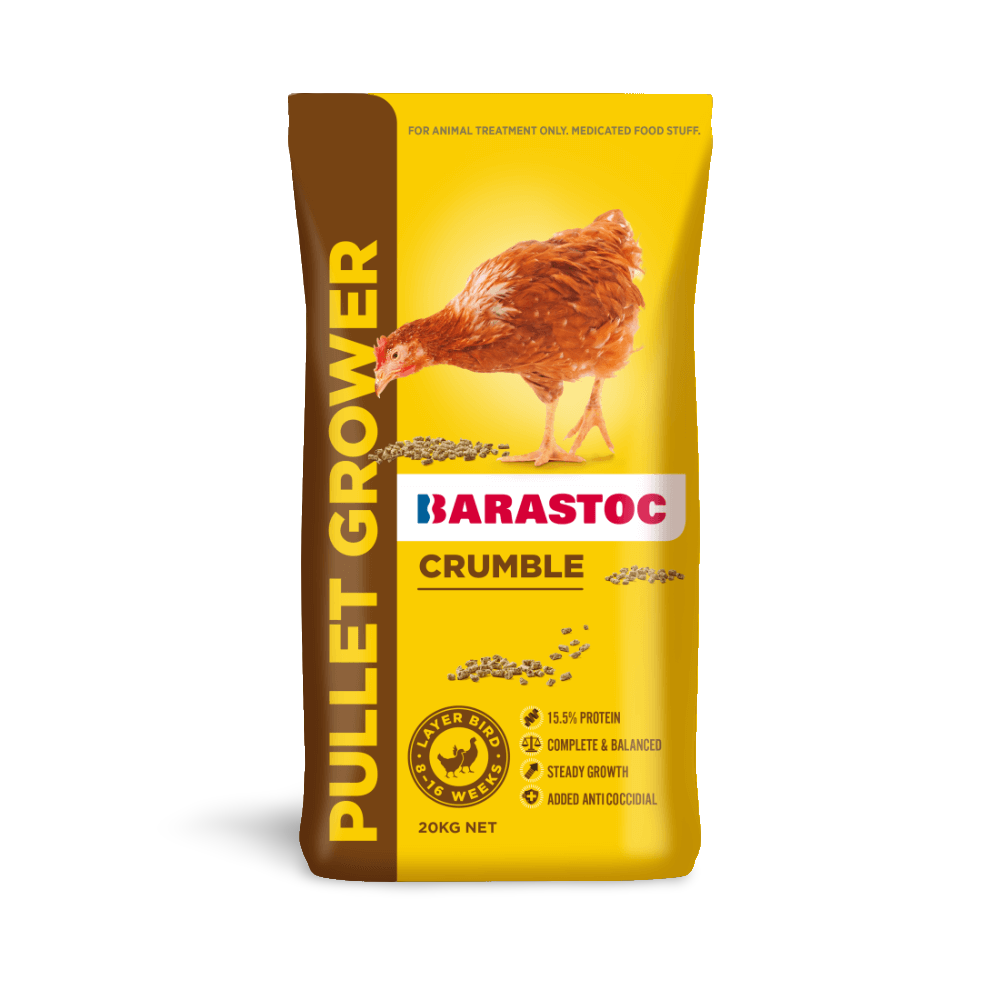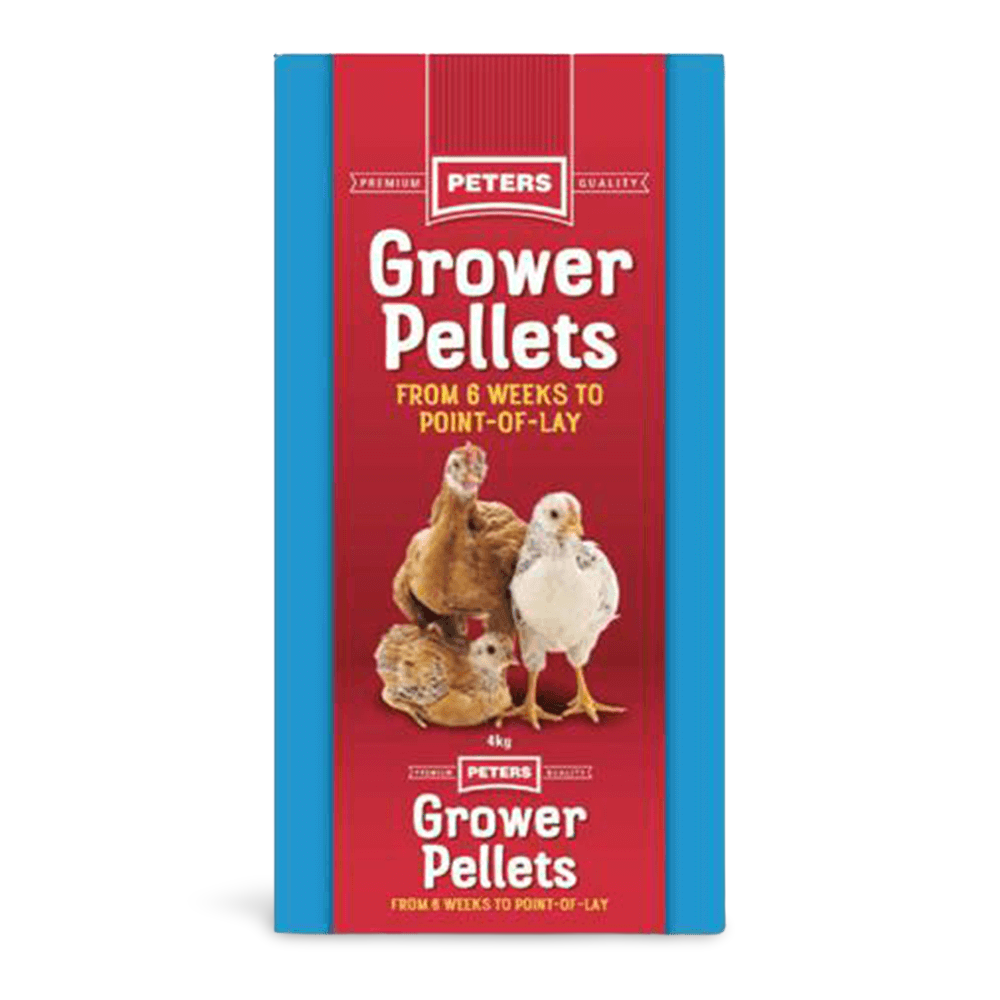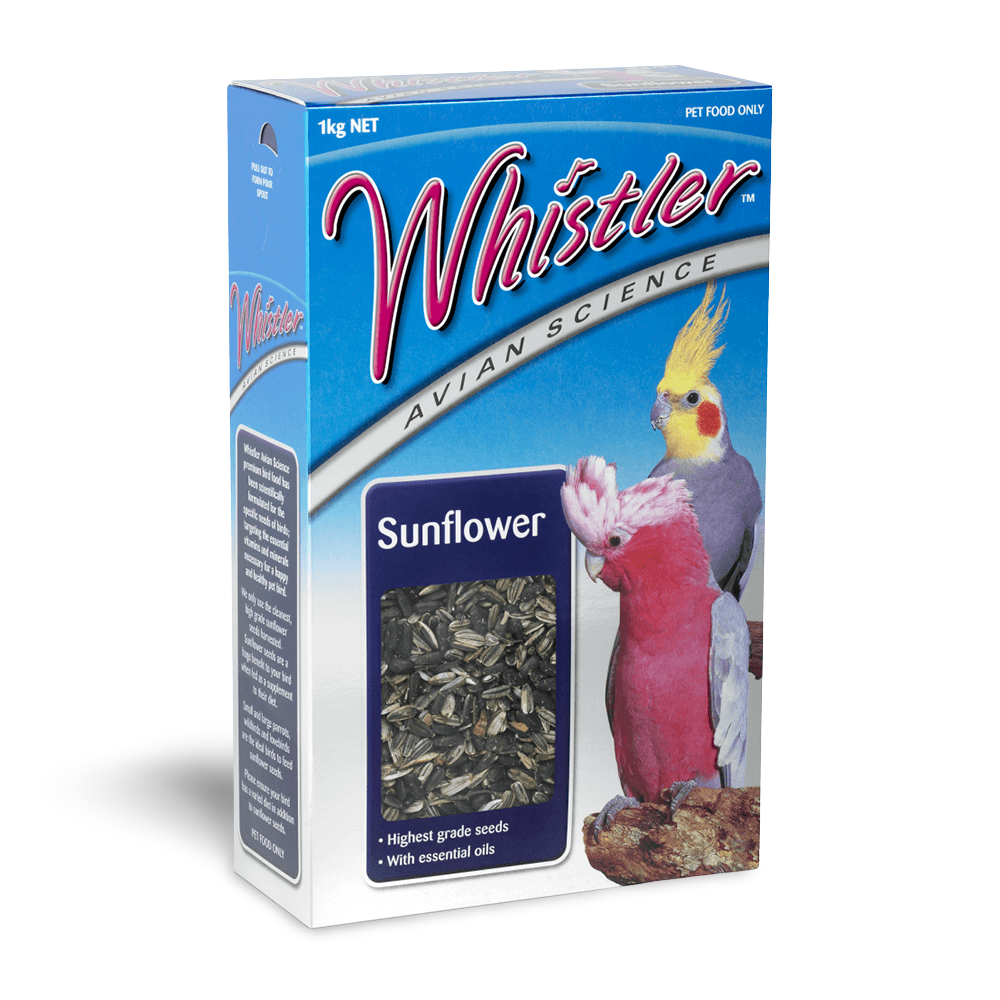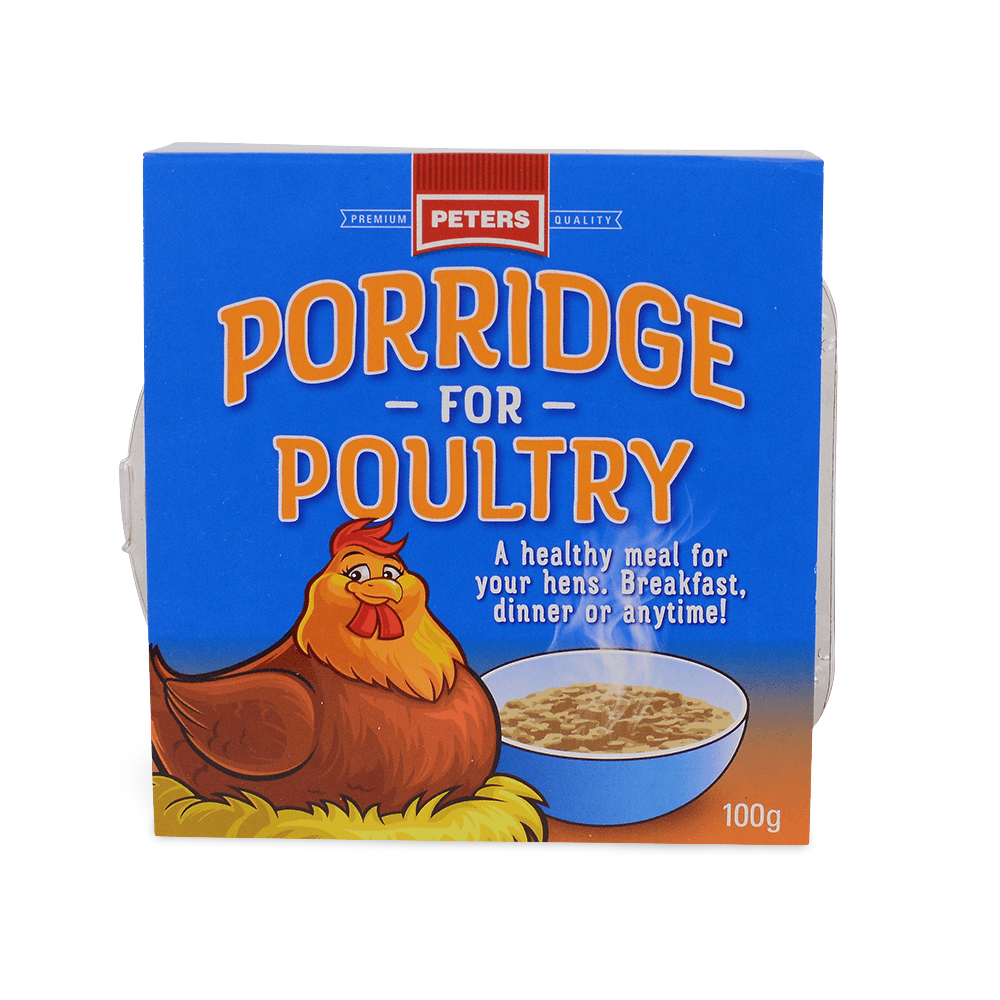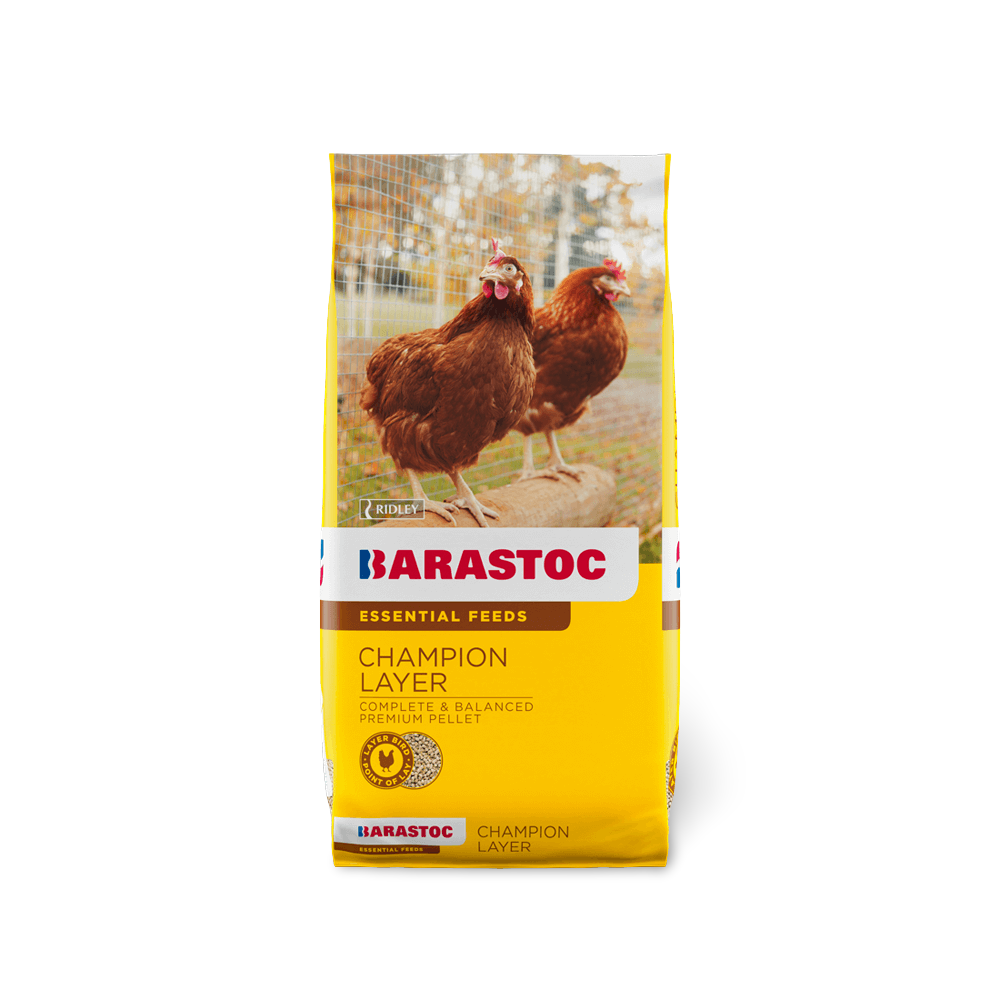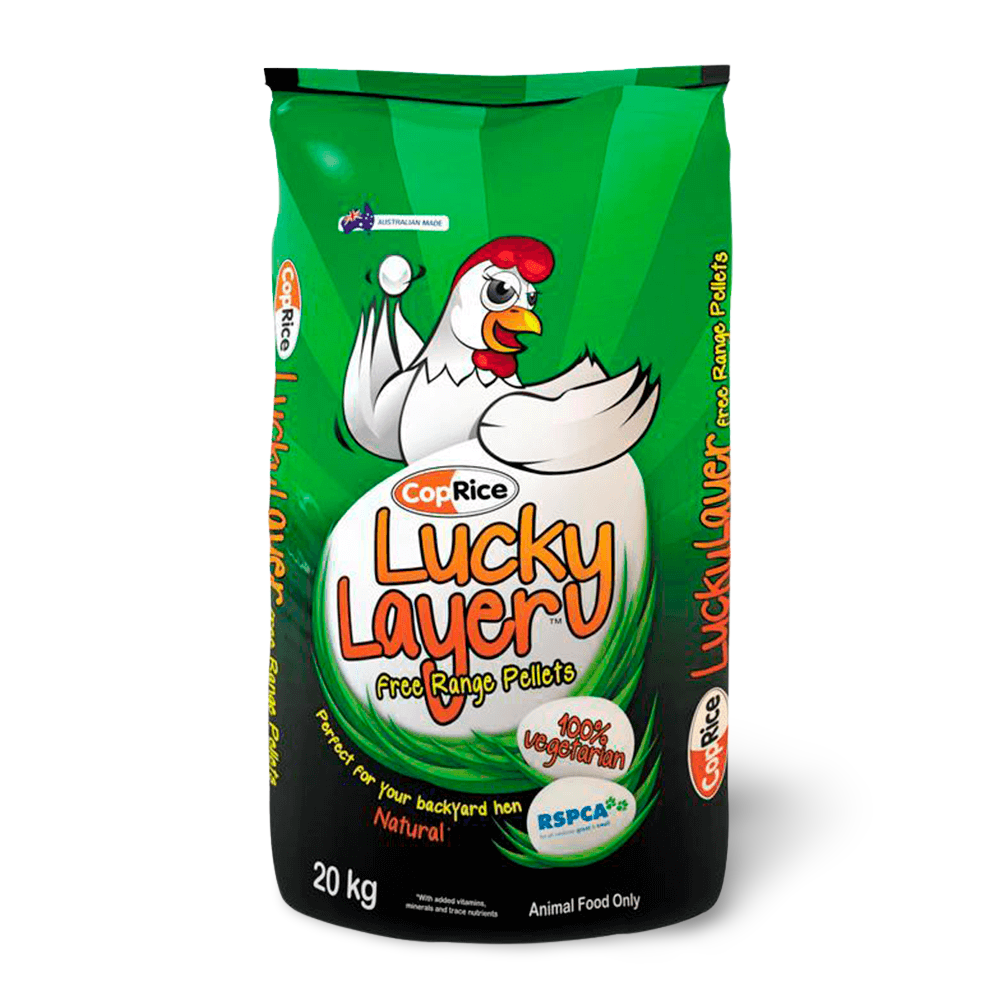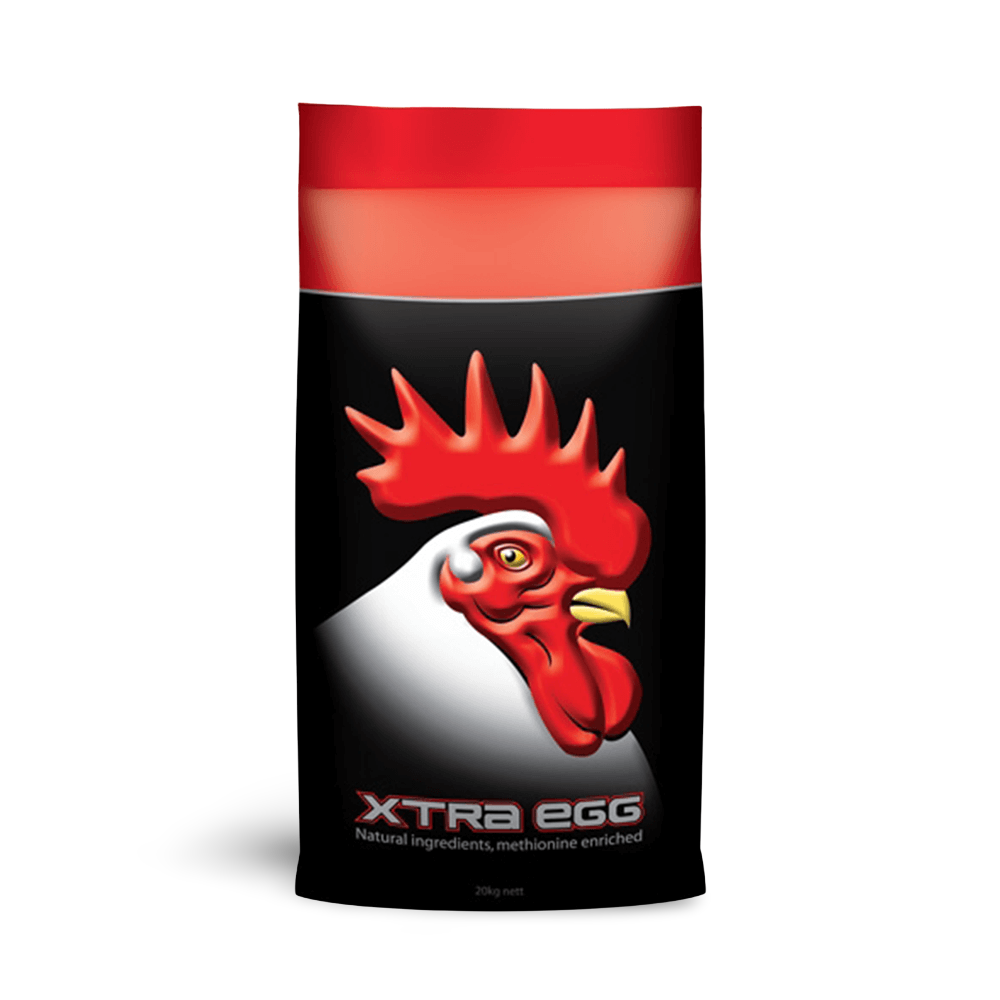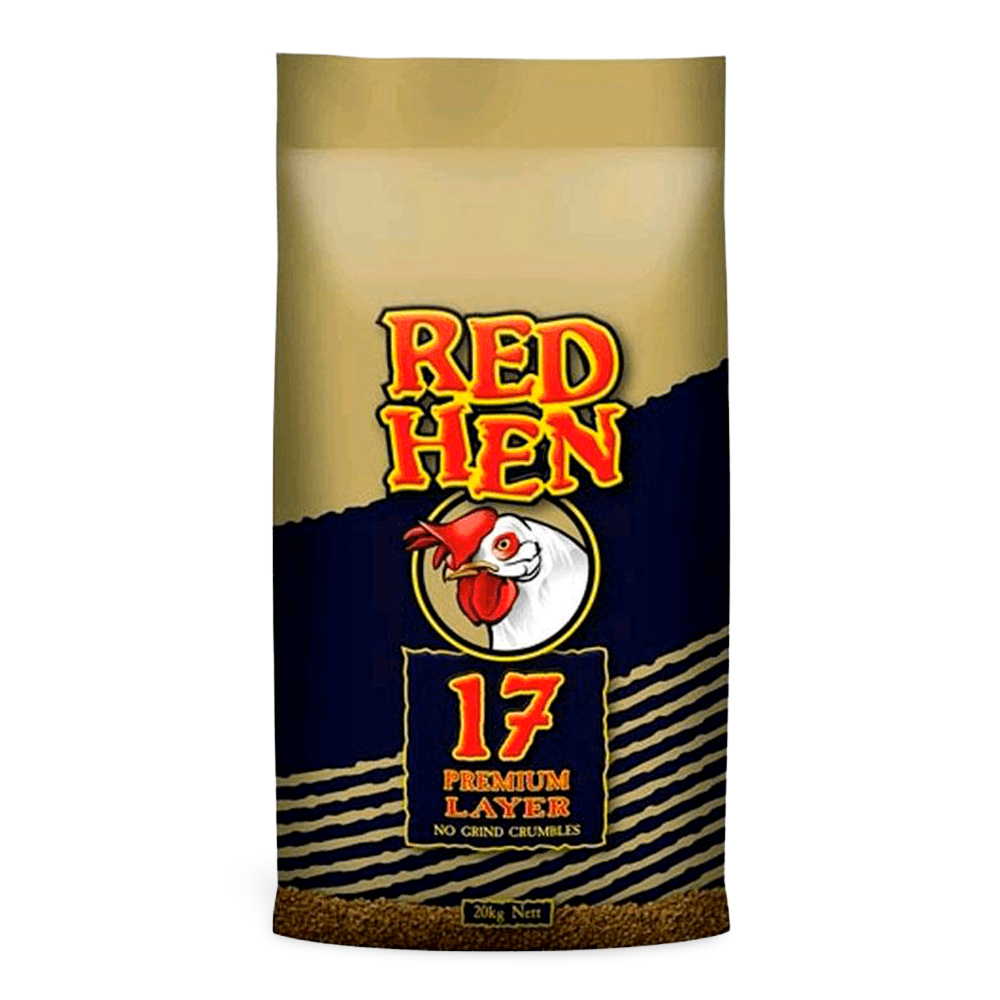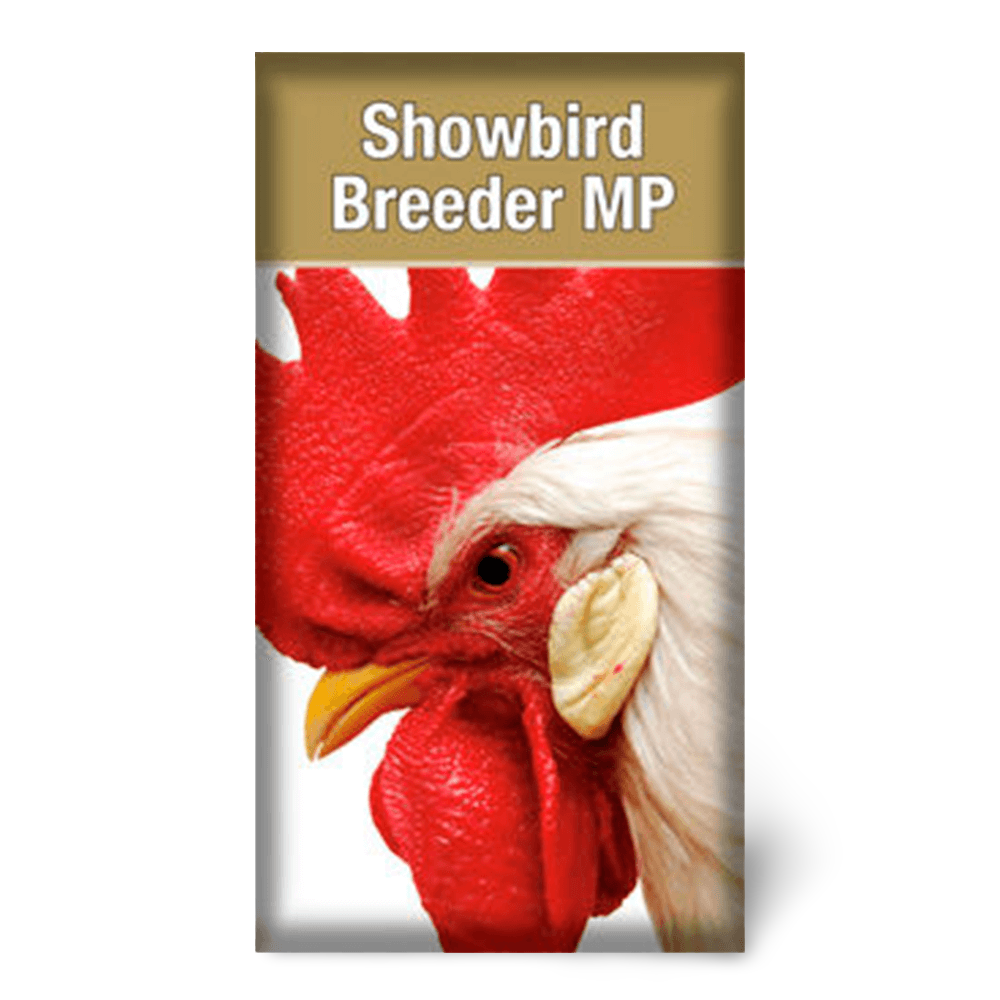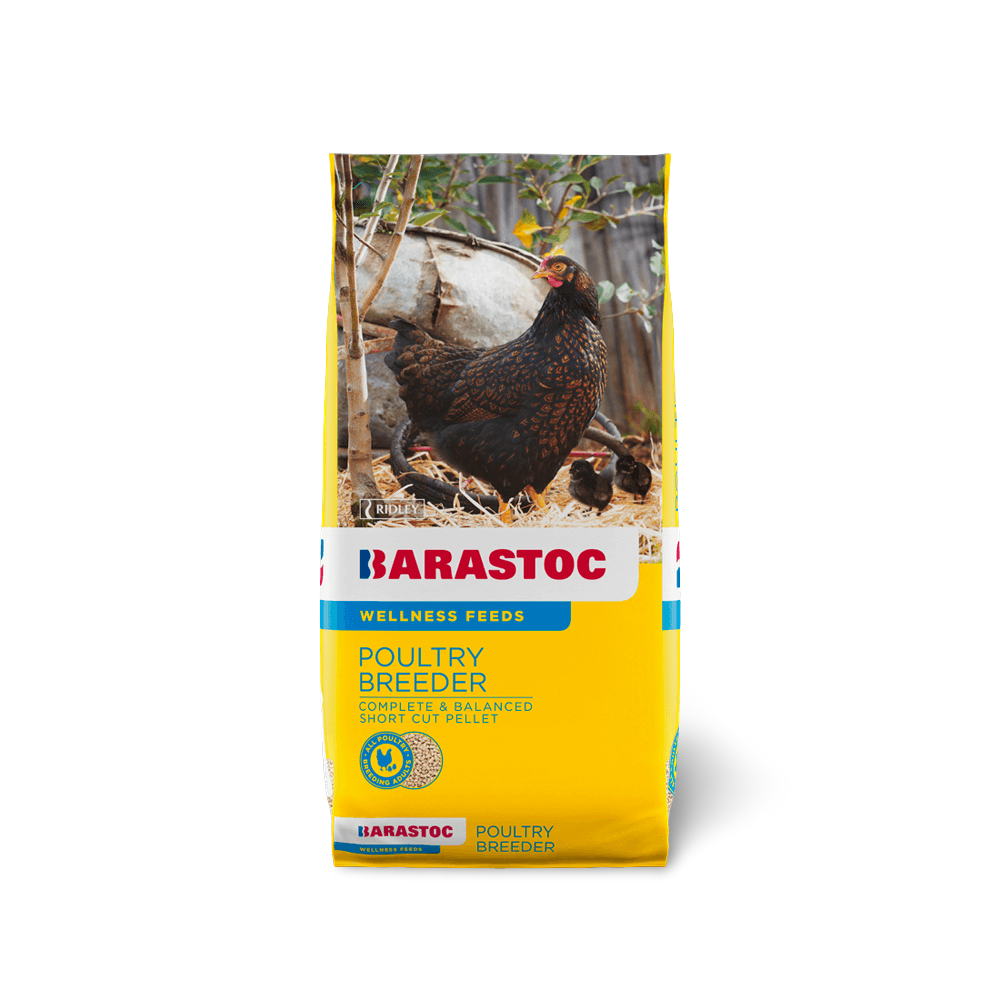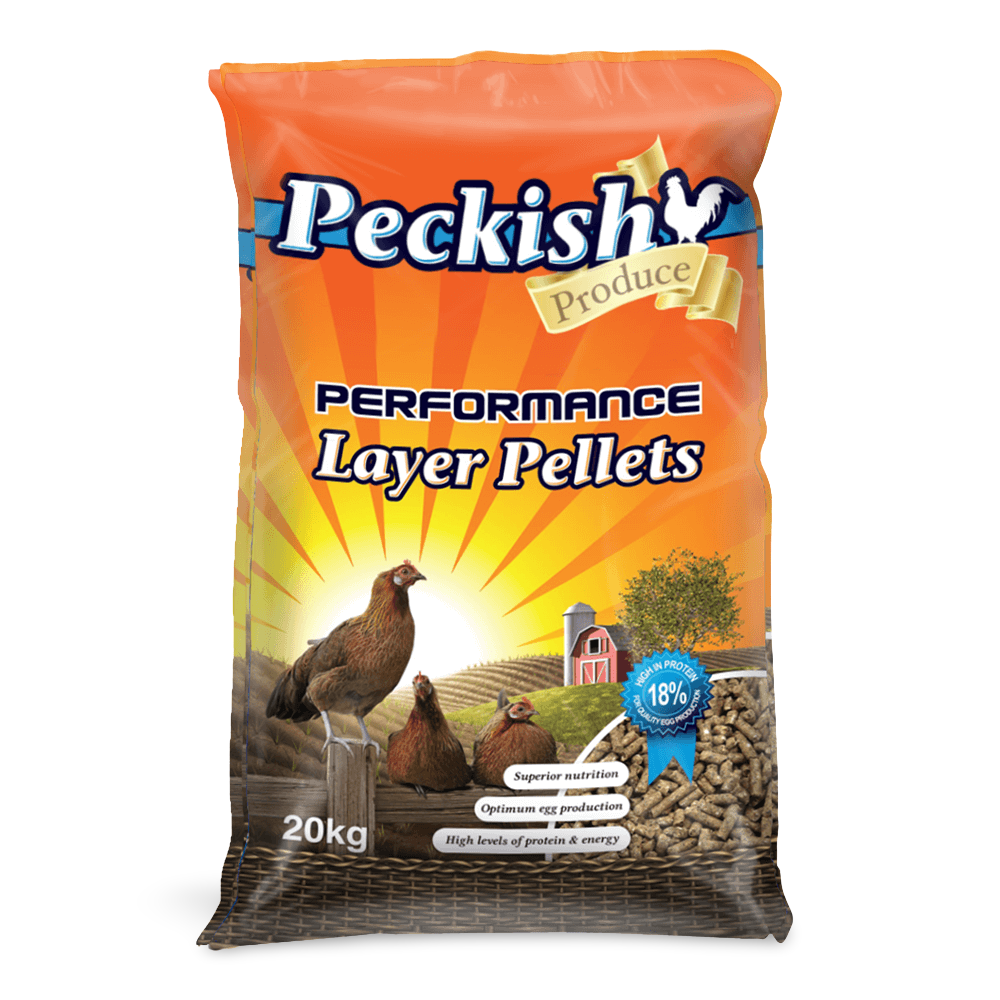Feeding all Ages of Chickens
Chickens need proper nutrition through all stages of life to give them the best chance of being happy, healthy birds. Young chickens have specific dietary requirements that are essential to healthy growth, whereas layer hens require increased amounts of protein and calcium to facilitate healthy egg laying.Â
Young Chicks (Hatching to 6-8 weeks)

This crucial stage of development is immensely important as the majority of growth and development occurs here. Chicks also do not have fully developed immune systems and organs, and so they are also more prone to illnesses during this time.Â
Chicks at this age cannot maintain body heat and require heat lamps or other external sources of heat until they fledge and grow adult feathers. Food and water should be easily accessible, and they shouldnât have to move far away from heat sources to eat and drink.Â
Chick starter pellets are high in easily digestible protein and calorie-dense, which means that metabolically active chicks can get enough nutrients and energy even in small servings. These pellets or crumbles are also specially designed to be easy for small beaks to eat. Chick starter should be available 24/7, as well as fresh, clean water.Â
Many chick starter formulations contain a coccidiostat like lasalocid, which helps to prevent a common intestinal parasite called coccidia, a notorious cause of illness and death in young chicks. Because of this inclusion in several chick feeds, it is important to ensure that chick starter is only fed to young chickens, and Some owners prefer to use unmedicated feeds, and if so, hygiene and biosecurity needs to be faultless to reduce the risk of illness.
Growers and Pullets (6-8 weeks to Point of Lay at 16-20 weeks)
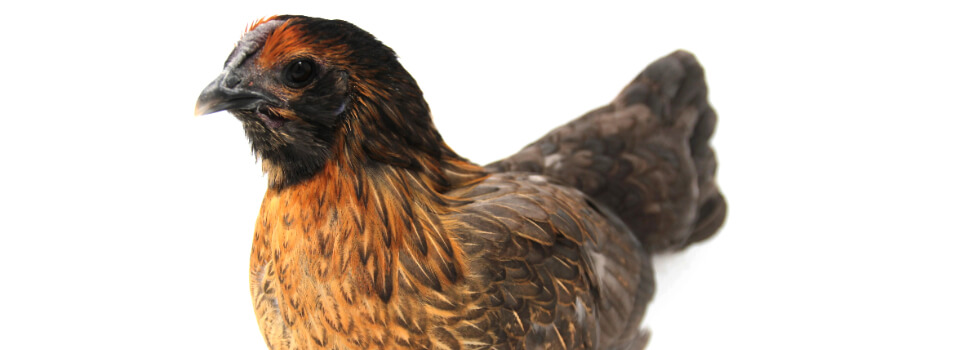
Once baby chicks start to grow adult feathers, they become much more mobile, robust, and start to be able to regulate their own body temperature. However, they are still more vulnerable to disease, and should still be kept in a protected environment. Once they reach 14-18 weeks of age, they can slowly be transitioned to an adult environment, or slowly integrated into the main flock.Â
While chickens at this stage are still growing, they are also setting up their egg-laying machinery, and this requires good nutrition to prepare them for laying an egg once every 24-48 hours.Â
Grower chickens still require a good amount of protein, and their calcium requirements now start to increase. The calcium reserve for eggshell production comes from their bones, and so this is the most important time to help them build a strong and healthy skeletal system. Grower pellets and fresh water should continue to be available 24/7.Â
This is also a great time to gradually introduce them to other foods such as fresh fruit and vegetables, whole grains, and treats. Suitable fruit and vegetables include apples, pears, banana, stonefruit, leafy greens, cabbage, corn, capsicum, carrot, and pumpkin, and cooked or raw is fine. Avoid raw potato and sweet potato due to the reduced digestibility. Onions, garlic, leeks, chives, and avocado are toxic to birds.
Laying Hens

Mature laying hens have finished growing and are now much more robust, with a fully developed immune system. However, it is still important to reduce exposure to new pathogens, and ensure that all new arrivals to the flock are quarantined for at least 2 weeks.Â
There are several laying formulas available on the market, and they all prioritize a moderate protein content to encourage egg production, as well as ensuring that calcium balance is maintained.Â
While laying pellets can be available 24/7, laying hens also benefit from a varied diet including foraged food, fresh fruit and vegetables, whole grains, and insects, and we recommend that at least 30% of their diet consist of varied foods.Â
Supplements can help laying hens ensure that they are getting enough calories, vitamins, and minerals; however, hens eating a high quality, balanced diet with lots of variety should not require a dietary supplement. Be mindful of supplements for pet birds, as some may contain ingredients that shouldnât be fed to food-producing animals.
Mature Chickens
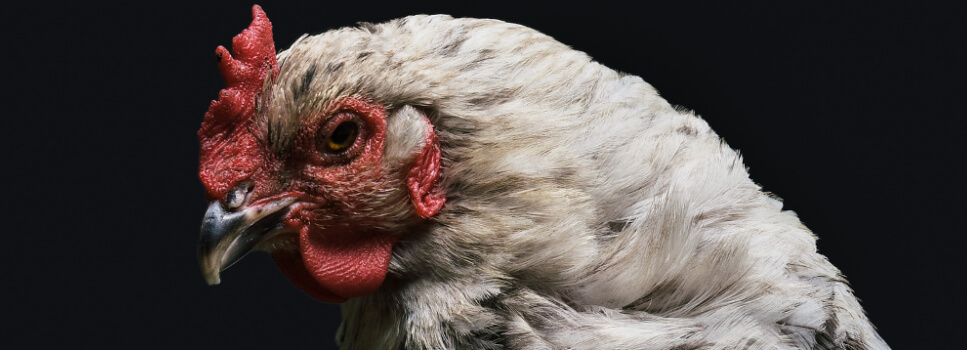
Older chickens and chickens past their laying age still require good nutrition, as the change in energy requirements may cause them to fluctuate in weight. They may also drop in the flock hierarchy and require additional separate feeding if they are not maintaining weight. These older chickens do not require the higher calcium and protein content of layer feeds, but these feeds donât cause harm, and they can be fed layer feed along with the rest of the flock and supplemented with a different feed separately. A feed that prioritizes body condition and health is a good option for feeding. Treats and supplements are similar to that for laying hens, as well as fresh food and other variations to the diet.Â
Increasing antioxidant and beneficial fatty acid content of the diet in older birds can be helpful for maintaining health, and supplements like Passwell Good Oil and Rose Hip Vital are good sources of these nutrients.
Senior chicken pellets
Further Reading
Want to read more? Check out our other articles:
Chicken Health and Parasite Prevention
Understanding Chicken Behaviour
Want to know more? Check out our Discover Page for more tips on keeping your pets happy and healthy.

























